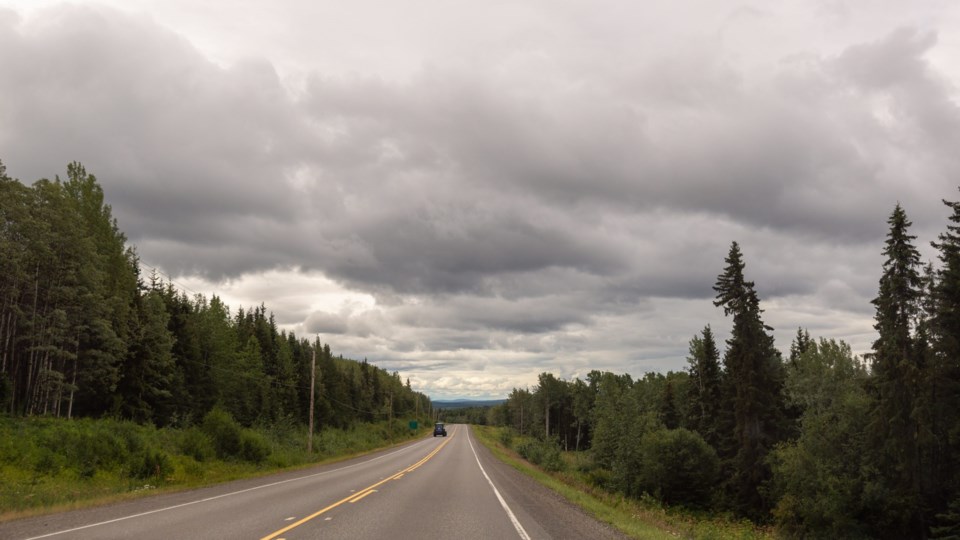I filled up my car yesterday and paid $1.329 per litre, 9.96 cents per litre of that carbon tax. Then I drove the 15 kilometres from town to home.
I don’t mind the carbon tax. In principle, it’s a good incentive for industry and residents alike to reduce their carbon footprint and contribute to tackling climate change.
B.C. was a trailblazer, introducing the tax while other provinces spent their energy fighting the very idea of climate change, let alone action to address it.
Earlier this month the highest court in the country ruled that a federal carbon tax is constitutional, and those provinces opposed to carbon pricing will have to open up a new front in their fight or adopt the federal plan. Those include Alberta, Saskatchewan, Manitoba, and Ontario.
B.C. will stay the course with the carbon pricing put in place in 2008 – but there is one element of the federal plan that the provincial government ought to consider.
The federal scheme includes a Climate Action Incentive payment that ranges from about $600 to $1,000 for a family of four in provinces where the federal tax applies. Of note, the incentive payment includes a 10 per cent supplement for residents of small and rural communities.
“In recognition of the fact that people who live in small and rural communities have reduced access to cleaner transportation options, a 10 per cent additional supplementary amount will be provided for eligible individuals and families who live outside a census metropolitan area, as defined by Statistics Canada,” it says.
Uh, yeah.
Carbon tax pricing is an effective incentive to cut carbon emissions by adopting less carbon-intensive means of transportation, manufacturing, heating, etc. In other words, high gas prices are SUPPOSED to make it more worthwhile for people to take the bus or buy electric vehicles.
But it’s an incentive only if those other means of transportation or home heating or powering manufacturing are available.
And let me tell you, beyond the 604 they’re few and far between. In most rural communities there are no buses, or buses that run twice a day.
One of the benefits of rural living is space – but that also means living further not just from neighbours, but the nearest services.
Another benefit is to enjoy the pristine nature with hiking and camping. That means driving, sometimes quite a distance, over untended backcountry roads, through mud and the occasional shallow river, sometimes pulling a downed tree out of your path.
I’d love to buy an electric vehicle – and I will, when manufacturers can guarantee at least 400-500 kilometres on a charge in -35C.
I’d love to buy an electric vehicle, and I will, when they are four-wheel-drive with enough clearance to tackle two feet of mud on a backcountry road during break-up, or what Metro Vancouver folks like to call spring cherry blossom season.
I’d love to buy an electric vehicle, and I will, as soon as my community has more than three EV charging stations and a reliable enough network that I won’t find myself parked on the side of the road with a dead battery and 100 kilometres left to my destination.
Last year the province announced joint federal-provincial-municipal funding of $1.7 million to install 83 more fast-charging EV stations across the province. Commendable, but not nearly enough.
On April 1, 2021, B.C.'s carbon tax rate rose from $40 to $45 per tonne. In pocketbook terms, that’s 9.96 cents/litre on gasoline; 11.71 cents/litre diesel; 8.82 cents/cubic metre on natural gas; and 6.98 cents/litre propane.
The rate is scheduled to increase to $50 per tonne next year, or 11.05 cents/litre on gasoline; 13.01 cents/lite on diesel (light fuel oil); 9.79 cents/cubic metre natural gas; and 7.74 cents/litre for propane.
The plan is for the federal carbon price will increase annually to about $170 per tonne by 2030, and the B.C. price will have to keep pace.
So until reliable alternatives are available, I hope next year’s budget contains a similar income tax break for rural B.C. because on my travels around the Cariboo I’ve seen dozens of bears and moose, hundreds of deer, and even a wolverine once. But an EV? Now that’s an understandably rare sight.
Dene Moore is an award-winning journalist and writer. A news editor and reporter for The Canadian Press news agency for 16 years, Moore is now a freelance journalist living in the South Cariboo. Moore’s two decades in daily journalism took her as far afield as Kandahar as a war correspondent and the Innu communities of Labrador. She has worked in newsrooms in Vancouver, Montreal, Regina, Saskatoon, St. John’s and Edmonton. She has been published in the Globe and Mail, Maclean’s magazine, the New York Times and the Toronto Star, among others. She is a Habs fan and believes this is the year.
SWIM ON:
- Dene Moore last wrote about a bold new plan for Ireland's rural areas that has rural British Columbians green-eyed with envy.
- Improved batteries will narrow the price gap between EVs and gas-powered cars, forecasts Rashid Husain Syed.
- Bob Price mapped out the road ahead for B.C. Truckers as technology changes and reducing emissions becomes a priority.



